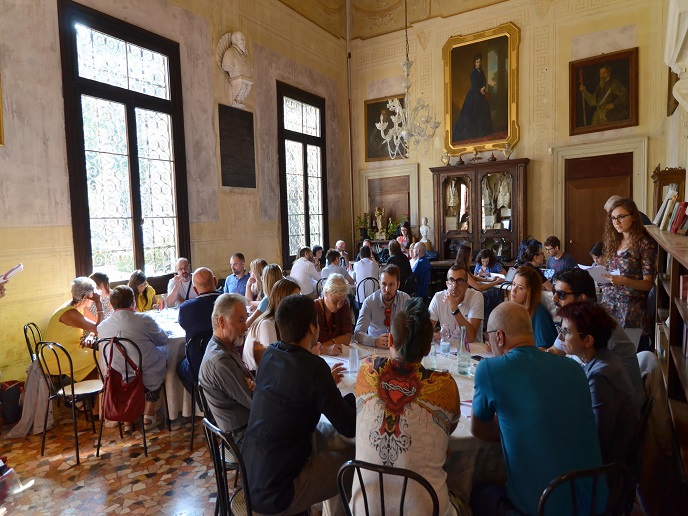Who Europeans trust when it comes to science
Since the days of the Royal Society’s 1985 Public Understanding of Science report, science communication has shifted from a bias prioritising the needs of scientists, towards models of citizen participation. “But for participation to be most productive, we need to understand what citizens actually bring to the table in terms of their knowledge, beliefs, opinions and perceptions,” says Carolina Moreno-Castro, coordinator of the EU-funded CONCISE (Communication role on perception and beliefs of EU Citizens about Science) project. To achieve this, CONCISE analysed data from consultations across five countries, with almost 500 citizens, concerning four burning science topics, and has already published several papers, book chapters and a book.
Consulting European citizens on science
CONCISE conducted consultations in three southern European countries (Italy, Portugal and Spain) and two central European countries (Poland and Slovakia). Almost 500 citizens were engaged, and questions were focused on four science issues: vaccines, complementary and alternative medicine (CAM), climate change and genetically modified organisms (GMOs). Participants were grouped according to similar educational levels, while reflecting a diversity of gender, age and social grade. The discussions were moderated, with an observer recording proceedings, which included making notes about group behaviours. After coding the transcripts, CONCISE conducted quantitative analysis based on a lexical-metric approach using specialist software, alongside qualitative analysis using NVivo software. The methodology enabled the team to include the social aspects of communication. “We looked at how participants used language to achieve specific effects, such as building trust, creating doubt, evoking emotions and expressing consent or dissent,” Moreno-Castro from the University of Valencia, the project host, explains.
Key findings on Europeans’ views of science
Overall, participants were found to feel that while they had ready access to plenty of science information, they lacked specific knowledge when it came to making science-related decisions. Analysis also revealed that generally citizens of all countries trusted scientists, public institutions (such as governments and universities), close sources (such as family, friends and clinical doctors) and those with topic familiarity. However, many were wary of vested interests, such as research funders. NGOs played a more critical role for trustworthy information on environmental issues than on health issues, whereas commercial companies were trusted as sources of information about CAM, but not about vaccines or GMOs. Regarding information channels, social networks, as potential breeding grounds of fake news, were perceived as less reliable. “However, citizens recognised it depended on ‘whom you followed’, with closed networks like WhatsApp more highly valued due to personal connections,” adds Moreno-Castro. Concerning the role of the broadcast media, participants valued science sections in the news, science programmes on prime time and scientists appearing in programmes with large audiences. “Interestingly, participants also highlighted the influence of format and design on the message, if poorly packaged it seems less reliable,” she remarks. Citizens evidenced sophisticated strategies for verifying information, citing the assessment of source reliability, confirmation from other sources and using their own experience. “When debating CAM, distrust focused on the lack of scientific evidence, with treatments not subjected to the same laboratory testing as pharmaceutical drugs,” adds Moreno-Castro. When comparing the findings between countries, the team found more similarities than differences. But as Moreno-Castro notes: “Each country has its own cultural and social context. For example, Poland and Slovakia don’t have professional science communication in the way that the other countries do.”
Policy implications for better science communication
CONCISE hosted an online EU Policy Dialogue on Science Communication attended by 157 stakeholders, including regional, national and European-level representatives, during which the team shared their Policy Briefs. They also shared recommendations for both policymakers as well as communicators. In all the countries, including those with associations of science communicators, citizens asked for more skills and training for journalists who report on science. Likewise, in the five countries, citizens demanded that the science information be obvious, transparent and official, eliminating the possible biases of the companies that finance studies or research. CONCISE findings are also applicable to other European countries and can improve the communication of science. “Citizens should get science communication skills while obtaining their university degrees regardless of their field of study, and scientific and public institutions should hire specialised science communicators to disseminate and communicate science,” concludes Moreno-Castro.
Keywords
CONCISE, science communication, citizen participation, trust, policy, vaccines, complementary and alternative medicine, climate change, genetically modified organisms, media



